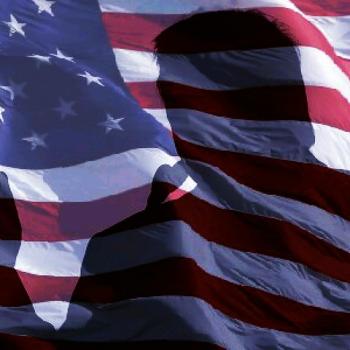The latest salvo in the push for legalizing euthanasia is to kill kids.
What was once supposed to be all about putting down people who were suffering horribly and in the last stages of terminal illness and who requested their own death has now become killing people who can’t consent and are nowhere near dying.
It has evidently occurred to a few people in America that we’ve got an euthanasia gap. Belgium has jumped ahead of us and allows their docs to kill children and people with dementia. But never fear: the euthanasia movement has found someone who is willing to tell us all about the tragic experience of euthanizing his toddler granddaughter by slow starvation and how we need to do something to kill these kids faster.
I’m normally not so sarcastic about people who step forward and take positions that I find appalling. I know that they are just people and that they probably believe in what they are doing. I think they need conversion, not the destruction of public attack.
But this push to expiate personal guilt by politicizing the victim’s death in order to change the law and open the flood gates on medical murder of children is a bridge too far.
I’ve been reading the stories about Bradley Newton’s heart-rending tale of how horrible it was for him to watch his granddaughter starve to death; how painful and hideous this death was and how he’s traumatized by it all.
What he’s leaving out is that he and the rest of his family were the people who starved this child to death. The victim is the little girl, not them.
Not content to have done such a terrible thing, Mr Newton and the rest of his family have made little Natalie the poster child for a campaign to legalize euthanasia for children. He’s appeared on CNN and other news shows, where I’m sure he got the tender and heartfelt sympathy of the interviewer for the “agonizing decision” he and his family made to slowly starve this child to death.
The family has set up a web site in “honor” of the baby they slowly killed. They petitioned the governor of Texas to “spare” others by allowing quicker ways to kill kids.
Watching Mr Newton’s teary interview pulls at my heart. He’s done a terrible thing and it bothers him. I identify with that. I also know how overwhelming and forceful the white coat people can be when your loved one is in the hospital. Any of us can fall prey to their pushy “advice,” especially when we don’t walk into the situation with values and beliefs about these things to guide us.
However, Mr Newton doesn’t want forgiveness. He still doesn’t think he did anything wrong. His response to his grief is to use his granddaughter’s death to multiply the harm. According to him the fault lies in the law that makes it too hard to euthanize children.
He, and at least part of the rest of Natalie’s family, blame everybody else for their actions. They’ve done everything but admit that they were not forced to submit this little girl to death by starvation, that murdering her in this way was their free choice. They could have chosen to let her live.
Their solution for their remorse is to campaign to turn this one murder into a cause for legalizing mass murder. That makes this grandfather’s grief a lot less touching.
The tragedy began when 21-month-old Natalie drowned in the family’s backyard pool. Doctors were able to revive her, but she suffered permanent brain damage that required her to be on a feeding tube. According to Mr Newton, the hospital “ethics” committee recommended that they “let her go.” But the only legal way to do this was to withdraw her feeding tube and let this 21-month-old child slowly starve to death over a period of nine days.
The articles I’ve read said that Natalie was “brain dead.” I don’t think that’s accurate. She clearly could breathe on her own, since the method of euthanizing her was to starve her to death. What her condition actually was, I don’t know. There are no facts about her condition in the stories surrounding this case; only lots of manufactured sympathy for the family which was “forced” to starve her and zero concern for the child they starved.
What passes for sympathy for Natalie is an aggressive politicizing of her death so that it can be used to allow quicker, more “merciful” ways to kill children in the future.
Here’s a news flash for everyone: Natalie should not have been murdered. Killing a person by actively, deliberately and with premeditation ending their life is murder.
Legislatures can pass laws saying that it is not murder. Legislatures can also pass laws saying that the moon is made of green cheese. They can make other statutes repealing the law of gravity. Ethics committees can vote that killing is the “ethical” thing to do and bamboozle families into putting down their loved ones. None of these laws and “ethical” votes will affect the reality that this is murder, because reality is not all that impressed with legislators and ethics committees.
Whatever you call it, however you disguise it, actively, deliberately and with premeditation ending the life of another person is murder and there is no law, lawmaker or ethics committee on this planet with the power to change that.
Natalie was horribly, cruelly murdered by her own family. Now her grandfather is using his sorrow over the “agonizing decision” they made, and the trauma he suffered from having participated in her slow, painful death to lobby the country for laws that would allow us to euthanize kids.
Natalie should not have been starved to death. That was the “agonizing” choice the family should have made. They should have said “no” to the ethics committee.
The decision to starve her to death is the kind of thinking I would expect from an “ethics committee.” I learned long ago that “ethics” is a nice-sounding synonym for no morals and no compassion.
No one can claim that this was a kindness to Natalie. I’ve talked to nurses who had to care for elderly people whose families decided to murder by withdrawing fluids and nutrition. Their descriptions of the resulting deaths are horrific. One question I have is why the “grieving family” whose trauma over this is so great that they feel compelled to campaign for legalizing ways to kill kids quicker didn’t call a halt to it and restore the feeding tube once they saw what it was like.
Natalie was murdered because not murdering her would have been a costly inconvenience for everyone, but most particularly for the medical ethicists who voted for her death. The recommendation of this committee was a classic case of putting a little girl out of the medical industry’s misery.












